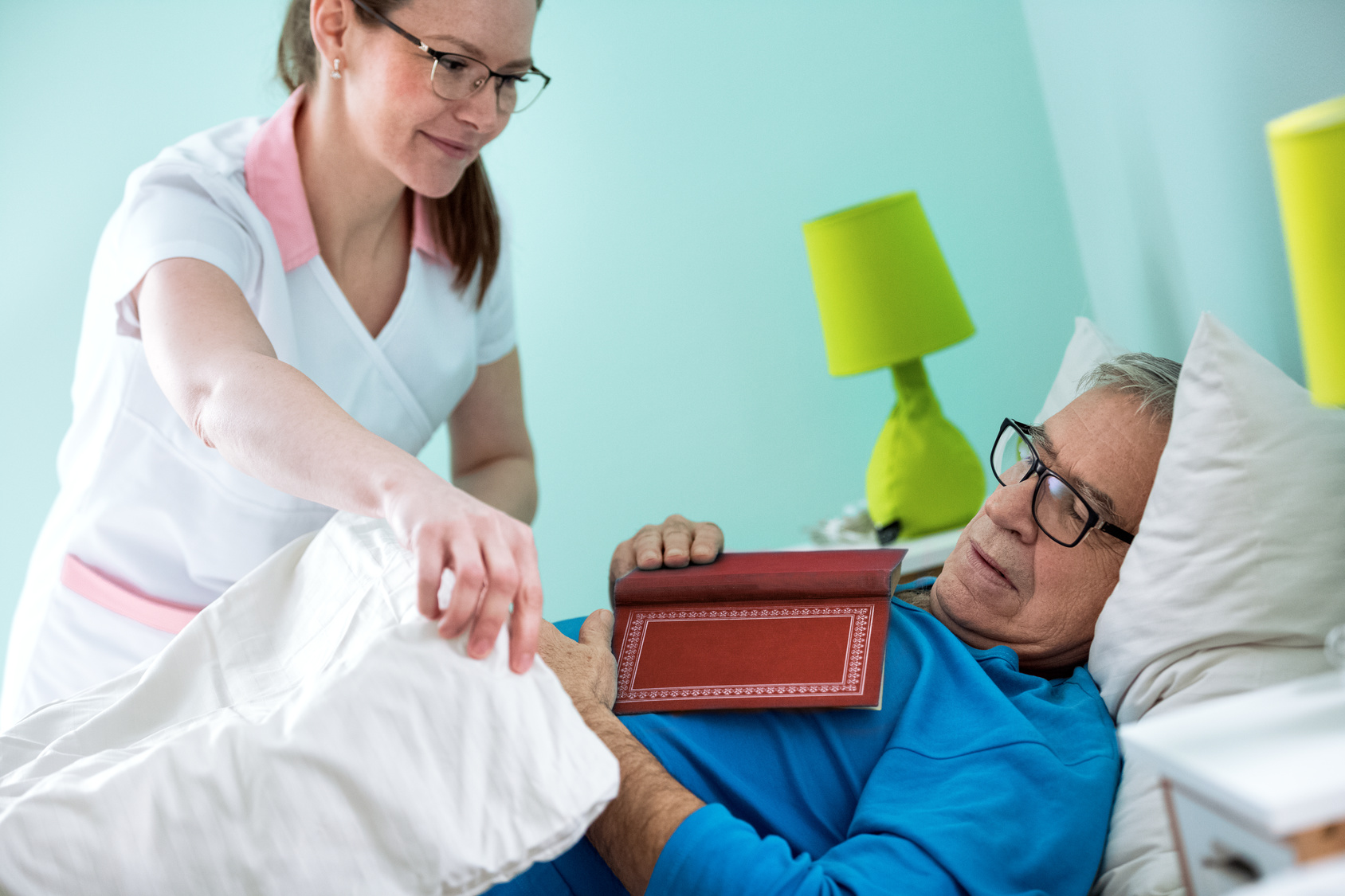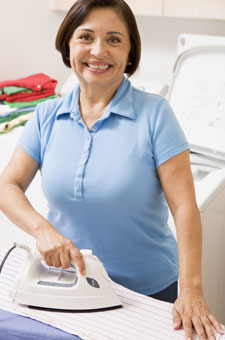Seniors who rely on advanced home care are presented with two practical options: live-in care or 24-hour care. Either forms of care give vulnerable seniors constant monitoring and attention. Differences do exist, however, and depending on individual circumstances, one type of care may be more suitable than the other.
What is the Difference Between 24-Hour and Live-In Care?
When live-in caregiving is desired, families should be prepared to hire at least two caregivers to work each entire week. Both caregivers are needed, as one fills in when the other is not scheduled. Each live-in caregiver is entitled to a four-hour break and an eight-hour sleeping break.
When 24-hour care is hired, elderly individuals can expect caregivers to work 8- to 12-hour shifts. In 24-hour care situations, two to three caregivers work each daily shift. These caregivers are not given a sleeping break. Families, at their discretion, may give 24-hour caregivers a break.
Live-in caregivers work 24 hours, often for 4 to 5 days at a time. The live-in caregiver does not actually live in the care recipient’s home. Rather, this type of caregiver has a personal residence and works onsite in the senior’s home for a set duration to provide care services.
Similarities of 24-Hour and Live-In Care
The benefits of live-in care and 24-hour care are manifold. Firstly, the senior is satisfied with the opportunity to age at home rather than in a nursing home. Secondly, the care recipient receives just as much care with live-in or 24-hour care services as in an institutional setting.
Medical professionals will be the first to recommend either live-in care or 24-hour home care, and their suggestions are based on the senior’s medical condition. Seniors recovering from an illness rely on continual supervision. Those with limited mobility also derive benefit from readily available assistance.
Additionally, seniors who suffer from cognitive ailments, like Alzheimer’s disease or other forms of dementia, are good candidates for live-in or 24-hour care. When families live too far to provide support, an in-home caregiver is feasible. Also, seniors who are overwhelmed with self-care need ongoing help.
What to Expect from 24-Hour and Live-In Care
Families with elderly loved ones can expect general assistance from live-in and 24-hour caregivers. Both types of caregivers provide medication management, such as reminders to take pills correctly and on schedule. Meal preparation, grocery shopping and light household chores are integral to both live-in and 24-hour care.
Both live-in and 24-hour caregivers provide transportation to the senior’s doctor’s appointments, exercise classes or social activities. In efforts to reduce isolation, companion care is provided. Caregivers might play card games and engage in conversations with the senior to stimulate cognitive function.
Since caregiving services are so similar, families may question what factors distinguish one form of care from another. Variances in structure (such as frequency of breaks) as well as familiarity, alertness and level of supervision differentiate live-in care from 24-hour care services.
What are the Benefits of Each?
Given that live-in care providers spend substantial time with the care recipient, a trusting, intimate relationship develops. Plus, a consistent level of care can be expected. Seniors are more comfortable with having one or two caregivers, as opposed to several different ones in 24-hour care situations.
Since the same live-in caregivers are present throughout the day and become familiar with the senior’s needs and medical condition, the care recipient is less subject to errors in care. Live-in caregivers respond immediately to issues and provide comfort when medical emergencies arise.
The advantages of 24-hour care also warrant consideration. When multiple caregivers work eight-hour shifts throughout the day, they are alert and attentive to medical changes in the senior. Concentrated focus is beneficial to the elderly who have serious medical conditions that may flare up without warning.
Having a watchful caregiver around at all times, even at night, makes 24-hour care extremely useful. Especially when the senior is in critical condition or is in hospice care, the services of a 24-hour caregiver assure that the elderly individual receives prompt attention during every waking and sleeping hour.
What are the Disadvantages of Each?
Breaks are mandatory for live-in caregivers. The drawback to breaks is that coverage is not provided, unless the family hires another caregiver or enlists a family member while the caregiver is on a four-hour or sleeping break. Hiring supplemental care can be a hefty expense for families.
Especially if the senior requires constant supervision, including throughout the night and during the four-hour mandatory break period, live-in care may be a less optimal choice. Such circumstances may be acceptable if the senior is able to remain independent for the brief, unsupervised duration.
While 24-hour care provides just that—around-the-clock care—this service is far pricier than live-in care. In addition to expense, 24-hour care providers rotate shifts frequently, meaning seniors rarely become acquainted with their caregivers. Such situations are less than ideal if the senior requires familiarity.
Contact a Home Care Agency for Live-In and 24-Hour Care
Serious health issues call for 24-hour care. Live-in care is appropriate for those with less-demanding needs, such as general personal care. To sustain the health or even improve the well-being of your elderly loved one, turn to Assisting Hands Home Care. Our live-in care and 24-hour care options can be tailored to meet the unique needs of the senior in your life.
With comprehensive non-medical home care services, such as help with grooming, bathing, toileting and meal preparation, Assisting Hands Home Care is prepared to meet the daily needs of your elderly loved one. In addition to personal care services, our dedicated caregivers offer companion care. We’ll accompany your loved one on walks to improve physical fitness and have meaningful conversations to reduce isolation.
Families in Evanston, IL and the surrounding areas continually return to Assisting Hands Home Care because of our commitment to serving the elderly population with compassion and skill. Our experienced caregivers provide in-home care for seniors with dementia, mobility issues or who simply need personal assistance with the activities of daily living.
Contact Us
We’ll develop a customized care plan that meets your loved one’s care needs and help them lead lives of dignity.
If a medical expert recommends 24-hour care or live-in care for your loved one, consult a knowledgeable representative from Assisting Hands Home Care at (847) 868-9280.




